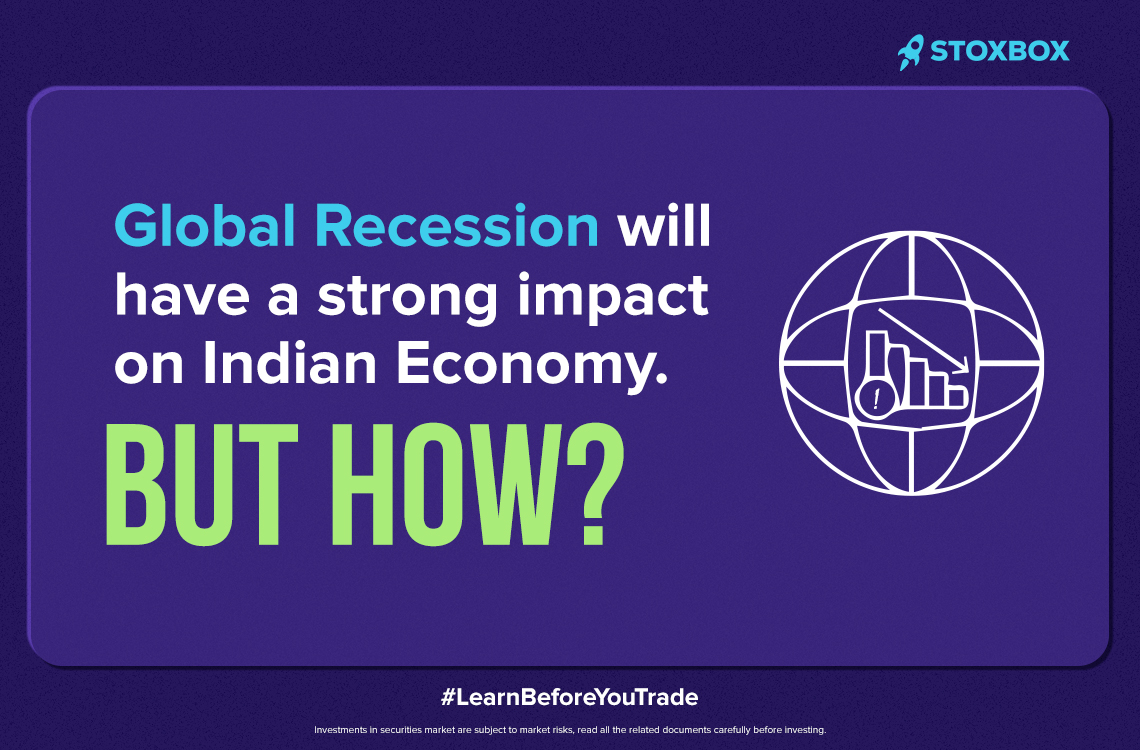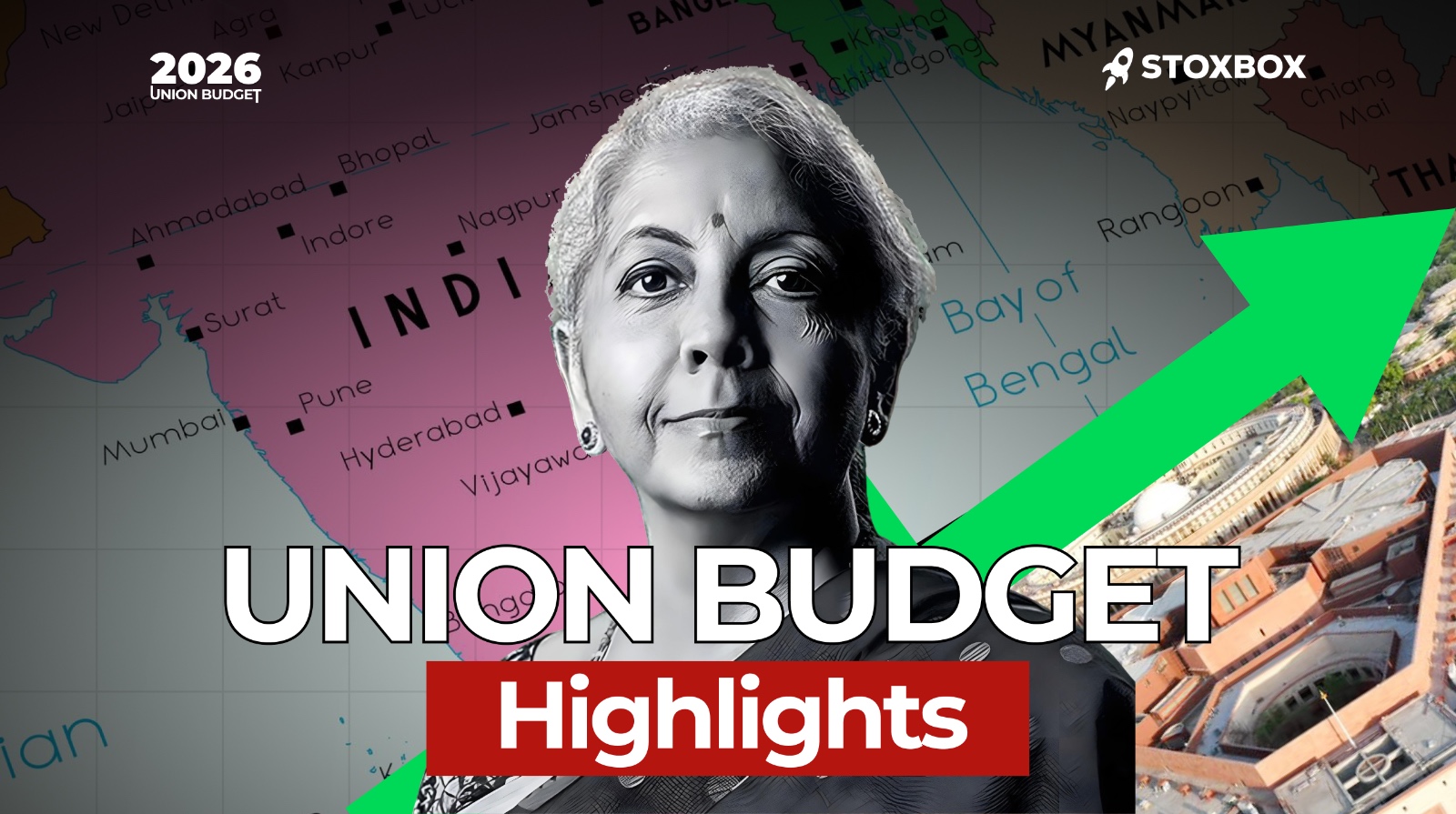Global recession impact in India and the area its impacted
Table of Contents
A recession can be defined as an economic downturn characterised by a significant decline in economic activity. Technically, two successive quarterly contractions in economic growth is termed “recession”. It typically involves a gross domestic product (GDP) contraction, high unemployment rates, reduced consumer spending, and decreased business investments.
What happens during a recession?
During a recession, businesses may face financial difficulties, leading to layoffs and reduced production. Governments often implement measures to stimulate the economy, such as lowering interest rates or increasing government spending. Recessions can have wide-ranging impacts on individuals, businesses, and economies, often causing financial hardship and slower economic growth.
In the past 30 years, when has the global economy faced recession?
In the past 30 years, the global economy has experienced several notable recessions. Here are a few significant examples, along with their causes:
First and foremost is the recession in the early 1990s. A recession occurred due to factors such as the bursting of the Japanese asset bubble, the Persian Gulf War, and economic imbalances in major economies like the USA.
Secondly, the Dot-com bubble burst. The dot-com bubble bursting in the early 2000s led to a recession. Excessive speculation and overvaluation of technology companies in the stock market caused a decline in business investment and consumer confidence.
Thirdly and the most important one, is the global financial crisis of 2008-2009. The collapse of the subprime mortgage market in the US triggered the most severe recession in recent history. The financial crisis spread globally, resulting in a credit crunch, bank failures, and a sharp decline in global trade.
Lastly, the most recent one is the COVID-19 pandemic. The global economy faced a severe recession due to the COVID-19 pandemic. Lockdown measures and disruptions in supply chains led to a significant contraction in economic activity across industries worldwide.
Has the Indian economy faced a recession in the past thirty years?
It is not that India is or was insulated from recession in the past. We have also burnt our fingers at different times. But most of the time, India emerged as the winner. This is because, despite witnessing a recession, India has also experienced periods of robust economic growth. In the 30 years, India has seen significant economic reforms, liberalisation, and globalisation, contributing to its emergence as one of the world’s fastest-growing major economies.
Before that, India experienced a relatively short-lived recession during the global financial crisis of 2008 09. The situation, triggered by the collapse of the subprime mortgage market in the US, had a ripple effect on the worldwide economy, including India. The Indian economy faced reduced export demand, a decline in industrial production, and a slowdown in investment during that period.
How was the severity in India compared to the global recession?
During the 2008-09 global financial crisis, India was impacted, but fared relatively better than many developed economies. India’s financial system was not as heavily exposed to toxic assets as some Western countries, which helped mitigate the direct impact. Additionally, the country’s strong domestic consumption and resilient agricultural sector helped somewhat buffer the crisis’s effects. However, India did witness a significant slowdown in industrial production, a decline in exports, and reduced foreign investment during that period.
Overall, while India may have experienced varying severity compared to global recessions, it’s important to note that recessions are complex events influenced by multiple factors. The country’s economic structure, policies, and resilience can play a significant role in determining the extent of the impact during such downturns.
Which areas of the Indian and global economy got the most due to the recession?
During recessions, specific sectors of the Indian and global economy are typically hit harder than others. Here are some areas that often face significant impacts:
Manufacturing and Industry: Manufacturing sectors, such as automotive, electronics, and heavy machinery, tend to suffer during recessions due to decreased consumer demand and reduced business investments. Industrial production and exports can decline, leading to layoffs and reduced output.
Services and Hospitality: Sectors like hospitality, tourism, and restaurants are highly vulnerable during economic downturns. Travel restrictions, reduced discretionary spending, and lower consumer confidence result in decreased service demand, leading to layoffs and business closures.
Real Estate and Construction: The real estate sector can face a downturn during recessions. Reduced consumer spending, tighter credit conditions, and declining housing demand can lead to decreased construction activity, lower property prices, and a slowdown in real estate investments.
Financial Markets: Recessions can significantly impact financial markets. Stock markets may experience sharp declines, and financial institutions face challenges due to increased defaults, reduced lending, and liquidity constraints.
Employment and Labour Markets: Recessions typically lead to higher unemployment rates as businesses cut costs and reduce their workforce. Job losses and reduced job opportunities can have a widespread impact on households and consumer spending.
How did India emerge as a winner?
Several factors helped India to overcome the ripple effects of global recession. Here are some of the factors that helped India:
India’s heavily reliant on agriculture economy was comparatively shielded from mass unemployment that affected other nations during the global financial crisis.
Indian banks and financial institutions largely avoided the mortgage-backed securities and toxic credit that caused the collapse of Western financial institutions.
Although the Great Recession negatively impacted India’s merchandise exports, the IT and BPO sectors remained resilient and did not suffer significant setbacks.
Despite the financial crisis, foreign direct investment in India showed an upward trend.
While financiers reduced their investments, long-term owners of companies and plants in India continued their ongoing projects, emphasising their commitment to long-term growth despite the crisis.
In the current context, significant economies across the globe are facing challenges on multiple fronts, which have primarily emanated from the tighter monetary policies by their respective central banks. The severity of the impact can be gauged from the slowing economic growth, high and sticky inflation, elevated unemployment levels and tepid consumer sentiment. However, India has remained resilient in the uncertain global world and is expected to log the fastest economic growth amongst major economies in 2023. Many structural factors are at play which have helped the Indian economy to shield itself from global headwinds, such as proactive monetary policy, reformist government initiatives, a vibrant manufacturing sector, robust domestic consumption, and most importantly, a very balanced approach in handling the COVID pandemic.
You might also Like.
Union Budget 2026-27 Impact on Sectors
Edit Announcement Companies Impact Rare earth permanent magnet manufacturing programme...



